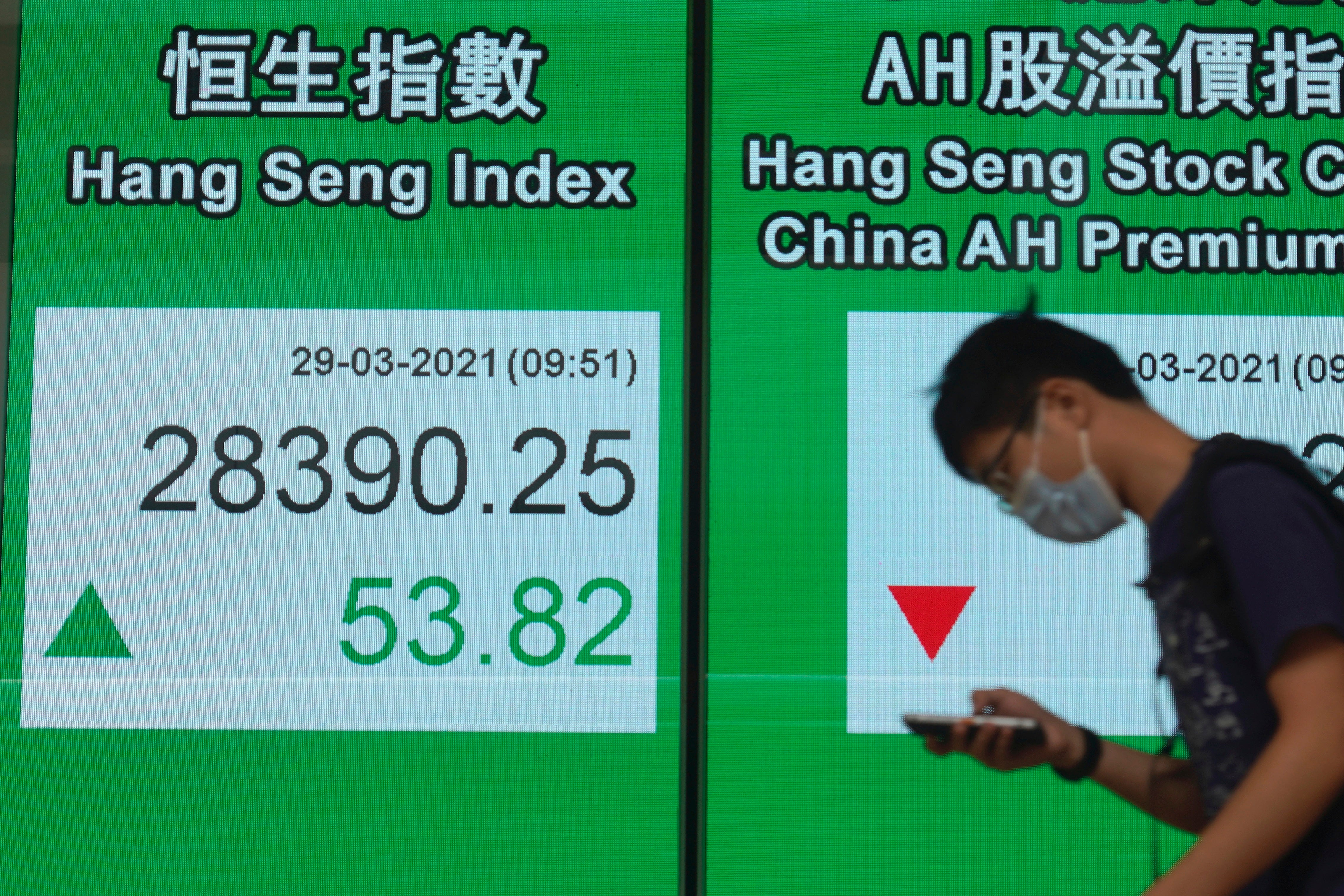Asian stocks advance on vaccine, stimulus optimism
Asian stocks rose Monday after Wall Street hit a new high and investors were encouraged by government stimulus and the rollout of coronavirus vaccines

Your support helps us to tell the story
From reproductive rights to climate change to Big Tech, The Independent is on the ground when the story is developing. Whether it's investigating the financials of Elon Musk's pro-Trump PAC or producing our latest documentary, 'The A Word', which shines a light on the American women fighting for reproductive rights, we know how important it is to parse out the facts from the messaging.
At such a critical moment in US history, we need reporters on the ground. Your donation allows us to keep sending journalists to speak to both sides of the story.
The Independent is trusted by Americans across the entire political spectrum. And unlike many other quality news outlets, we choose not to lock Americans out of our reporting and analysis with paywalls. We believe quality journalism should be available to everyone, paid for by those who can afford it.
Your support makes all the difference.Asian stocks rose Monday after Wall Street hit a new high and investors were encouraged by government stimulus and the rollout of coronavirus vaccines.
Shanghai Tokyo Hong Kong and Seoul advanced.
Wall Street’s advance Friday was led by stocks that would benefit if vaccinations and government spending boost the U.S. economy as much as expected.
Vaccines and stimulus have “helped to create an aura of high optimism,” John Bilton of JP Morgan Asset Management said in a report. He said “above-trend global growth” should last into 2022 and regions such as Europe that are at “peak pessimism” due to vaccine delays should accelerate later this year.
The Shanghai Composite Index rose 0.7% to 3,443.55 and the Nikkei 225 in Tokyo advanced 1.1% to 29,484.57. The Hang Seng in Hong Kong added 0.3% to 28,437.46.
The Kospi in Seoul was up less than 0.1% at 3,043.55 while Sydney’s S&P-ASX 200 shed 0.2% to 6,808.20. New Zealand an
d Southeast Asian markets advanced.
Markets have been swinging between optimism that vaccines might allow business and travel to return to normal and anxiety over setbacks in distribution and concern about possible inflation after massive government stimulus.
Investors were jolted last week by news Egypt’s Suez Canal, one of the busiest trade routes, was blocked by a cargo ship that became wedged into the waterway.
On Wall Street, the S&P rose 1.7% on Friday to 3,974.54. A quarter of that gain came in the last five minutes of trading. That produced a weekly gain of 1.7% after a 0.8% decline the previous week.
The Dow Jones Industrial Average rose 1.4%, to 33,072.88. The Nasdaq composite climbed 1.2%, to 13,138.72, though it is is 6.8% below last month’s record high.
U.S. stocks have benefited from President Joe Biden’s proposal for higher spending on infrastructure. Steelmaker Nucor climbed 8.9% and miner Freeport-McMoRan rose 5.9%.
In energy markets, benchmark U.S. crude lost $1.04 to $59.93 per barrel in electronic trading on the New York Mercantile Exchange. The contract rose $2.41 to $60.97 on Friday. Brent crude, the basis for international oil prices, retreated 96 cents to $63.47 per barrel in London. It advanced $2.62 the previous session to $64.57.
The dollar declined to 109.49 yen from Friday’s 109.69 yen. The euro edged down to $1.1787 from the previous session’s $1.1790.